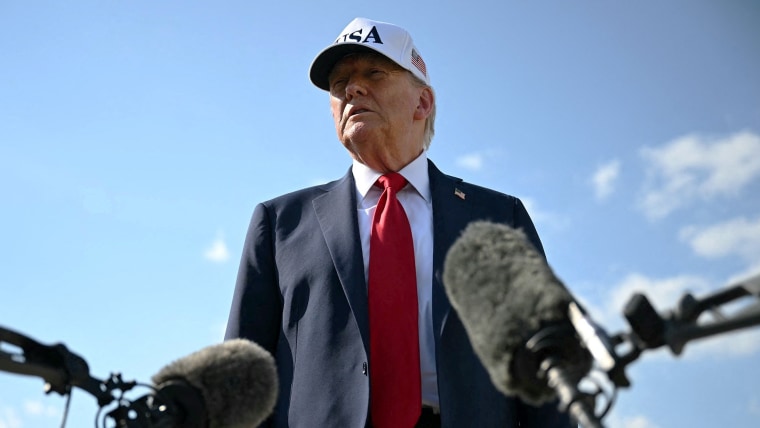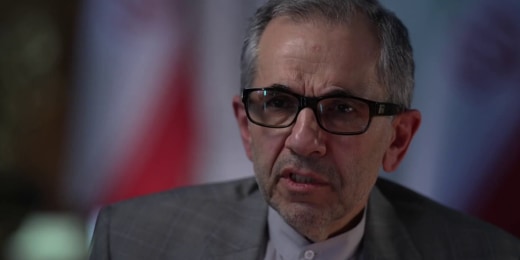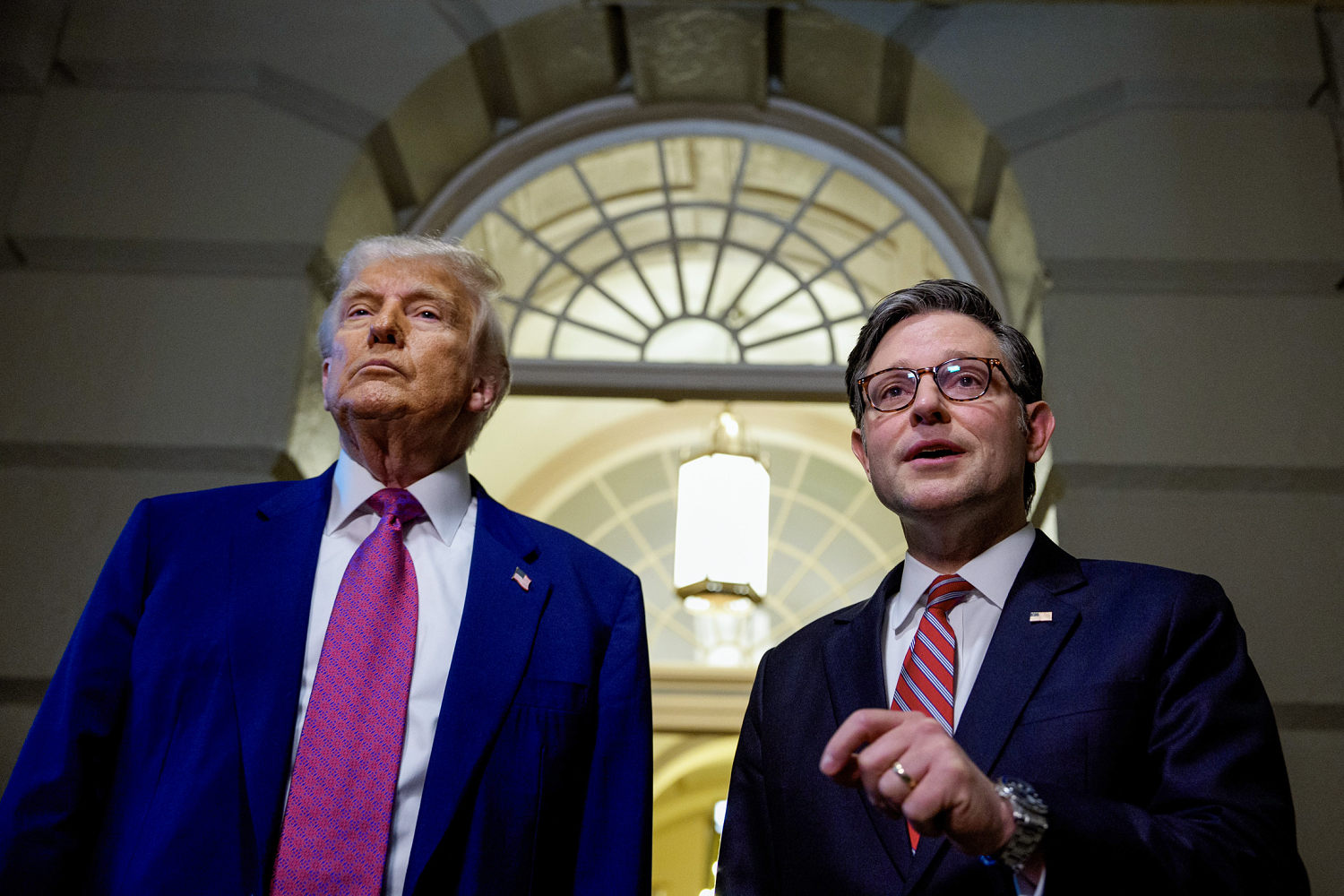An indie psych rock band has amassed more than 850,000 listeners on Spotify in a matter of weeks and generated buzz throughout the music industry — but nobody is exactly sure if it’s real or not.
The Velvet Sundown, a band bent on “Saving Modern Rock,” according to its Instagram account, has even some music industry veterans confused. The images put forward by the band all look like they were created by artificial intelligence. The music? That’s harder to say.
Rick Beato, a music producer with more than 5 million subscribers on YouTube, identified what he called “artifacts,” particularly in one of the tracks’ guitar and keyboard parts. He said that can indicate a song was created by AI.
“This is having a lot of problems, and I suspect that it may be because this is an AI track,” Beato said in a YouTube video, after running one of The Velvet Sundown’s songs through Apple’s Logic Pro track splitter. “Every time you have an AI song, they are full of artifacts.”
Whether the band is real, fake or something in between, its emergence and the broader debate about it add to a growing concern about the future of art, culture and authenticity in the era of advanced generative artificial intelligence. Many major tech platforms have already seen floods of AI-generated content, while AI influencers are becoming increasingly common on social media platforms.
Velvet Sundown appears to have first emerged in June, according to its social media profiles. On Spotify, the band has a “Verified Artist” badge, offering some sense of authority. On X, The Velvet Sundown teased an upcoming album, “Paper Sun Rebellion,” and nodded to questions about doubts about the band’s origins.
Aside from the quick rollout of songs, its uncannily plasticine promotional images of band members have prompted accusations of AI use as well.
In a video announcing the release of its upcoming album later this month, the band pushed back against accusations that it isn’t “real,” stating in one video that “you believed the lie, and danced to it anyway.”
“They said we’re not real,” the account posted. “Maybe you aren’t either.”
The band’s bio on Spotify claims that the group is composed of four people: singer Gabe Farrow, guitarist Lennie West, Milo Rains, “who crafts the band’s textured synth sounds,” and percussionist Orion “Rio” Del Mar. Farrow purportedly also plays the mellotron, which is an electro-mechanical instrument that plays recorded sounds when its keys are pressed.
“There’s something quietly spellbinding about The Velvet Sundown,” their Spotify bio states. “You don’t just listen to them, you drift into them. Their music doesn’t shout for your attention; it seeps in slowly, like a scent that suddenly takes you back somewhere you didn’t expect.”
Questions about the band’s origins were further complicated after other social accounts purporting to represent the band began rejecting claims that it was using AI-generated images or music, as well as a person who spoke to Rolling Stone claiming to be connected to the band who called it an “art hoax.” That person later admitted in a Substack post that his claim to represent the band was itself a hoax.
The Velvet Sundown said that the person quoted in the article is not affiliated with it in “any way.”
“He does not represent us, speak for us, or have any connection to this project,” The Velvet Sundown said in a statement to NBC News via Instagram.
On Thursday, the social media accounts tied to the band’s Spotify account posted that “someone is trying to hijack the identity of The Velvet Sundown by releasing unauthorized interviews, publishing unrelated photos, and creating fake profiles claiming to represent us.”
The Velvet Sundown’s YouTube publisher, Distrokid, did not respond to requests for comment. Spotify also did not respond to a request for comment.
The band’s meteoric rise highlights modern issues around AI and how difficult it can be to verify what is and is not real on the internet. Last year, Google researchers found that AI image misinformation has surged on the internet since 2023. A Consumer Reports investigation found that leading AI voice-cloning programs have no meaningful barriers to stop people from nonconsensually impersonating others.
According to the music streaming app Deezer, which uses its own tool to identify AI-generated content, 100% of The Velvet Sundown’s tracks were created using AI. Deezer labels that content on its site, ensuring that AI-generated music does not appear on its recommended playlists and that royalties are maximized for human artists.
“AI-generated music and AI bands may generate some value to the user, so we still want to display that,” Alexis Lanternier, the CEO of Deezer, said. “We just want to make sure that the remuneration is taken in a different way.”
Every week, about 18% of the tracks being uploaded to Deezer — roughly 180,000 songs — are flagged by the platform’s tool as being AI-generated. That number has grown threefold in the past two years, Lanternier said.
Suno and Udio, both generative AI music creation programs, declined to say whether The Velvet Sundown’s music was created using their software.
“I think people are getting too far down the rabbit hole of dissecting is it AI, is it not AI? And forgetting the important question, which is like, how did it make you feel? How many people liked it?” said Mikey Shulman, CEO and co-founder of Suno.
According to Suno’s rights and ownership policy, songs made by its users who are subscribed to its higher-tier plans are covered by a commercial use license. That allows them to monetize and distribute songs on platforms like Spotify without attributing them to Suno.
“There are Grammy winners who use Suno, you know, every day in their production,” said Shulman.
Recently, Grammy Award-winning record producer Timbaland launched an AI artist named TaTa with his new entertainment company, Stage Zero. He told Billboard that TaTa, who created a catalog of AI-generated music through Suno, was neither an “avatar” nor a “character.”
Suno was one of two AI companies sued last year by major record labels — including Universal Music Group, Sony Music Entertainment and Warner Music Group — which allege that the companies infringed on the labels’ recording copyrights in order to train their music-generating models.
About a year into the legal battle, however, the music labels have begun talks to work out a licensing deal so that Suno and Udio could use copyrighted recordings by compensating the artists for their work, according to a Bloomberg report published last month.
It’s a trend that’s become worrisome to artists like Kristian Heironimus, who is a member of the band Velvet Meadow (not to be confused with the now-viral The Velvet Sundown).
“I’ve been working for, like, six years just constantly releasing music, working my day job,” Heironimus said. “It is kind of disheartening just seeing an AI band, and then — in, like, what, two weeks? — [have] like, 500,000 monthly listeners.”
The creep of generative AI into music and other creative industries has incited backlash from those who worry about the devaluation of their human work, as many AI developers have been known to scrape data from the internet without human creators’ knowledge or consent.
Beyond ethical debates about the consequences of the AI impact on human labor, some online worry about the rise of low-quality AI slop as these tools grow increasingly capable of replicating voices, generating full-length songs and creating visuals from text prompts.
Heironimus said there are similarities between his band, Velvet Meadow, and The Velvet Sundown, beyond the names. One of the members pictured in The Velvet Sundown’s Spotify band photo, for example, looks similar to a photo of Heironimus when he used to have long hair, he said. The bands also fall within the same genre, though Heironimus described The Velvet Sundown’s tracks as “soulless.”
Shulman, of Suno, said most streaming music is already “algorithmically driven.”
“People don’t realize just how depersonalized music has become and how little connection the average person has with the artist behind the music,” he said. “It’s a failure of imagination to think that in the future, it can’t be a lot better.”
But Lanternier, of Deezer, argues that as AI continues to evolve, streaming platforms should also be trying to ensure artists can make enough royalties to survive.
“People are not only interested in the sound. They are interested in the whole story of an artist — in the whole brand of an artist,” Lanternier said. “We believe that what is right to do is to support the real artist, so that they continue to create music that people love.”


















































































